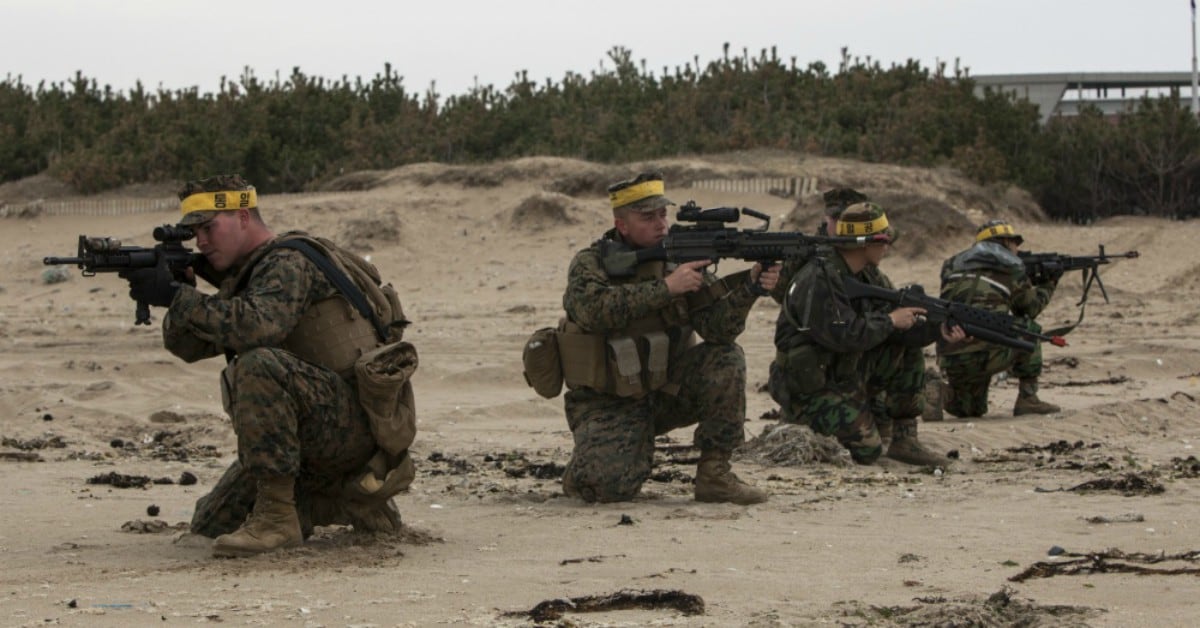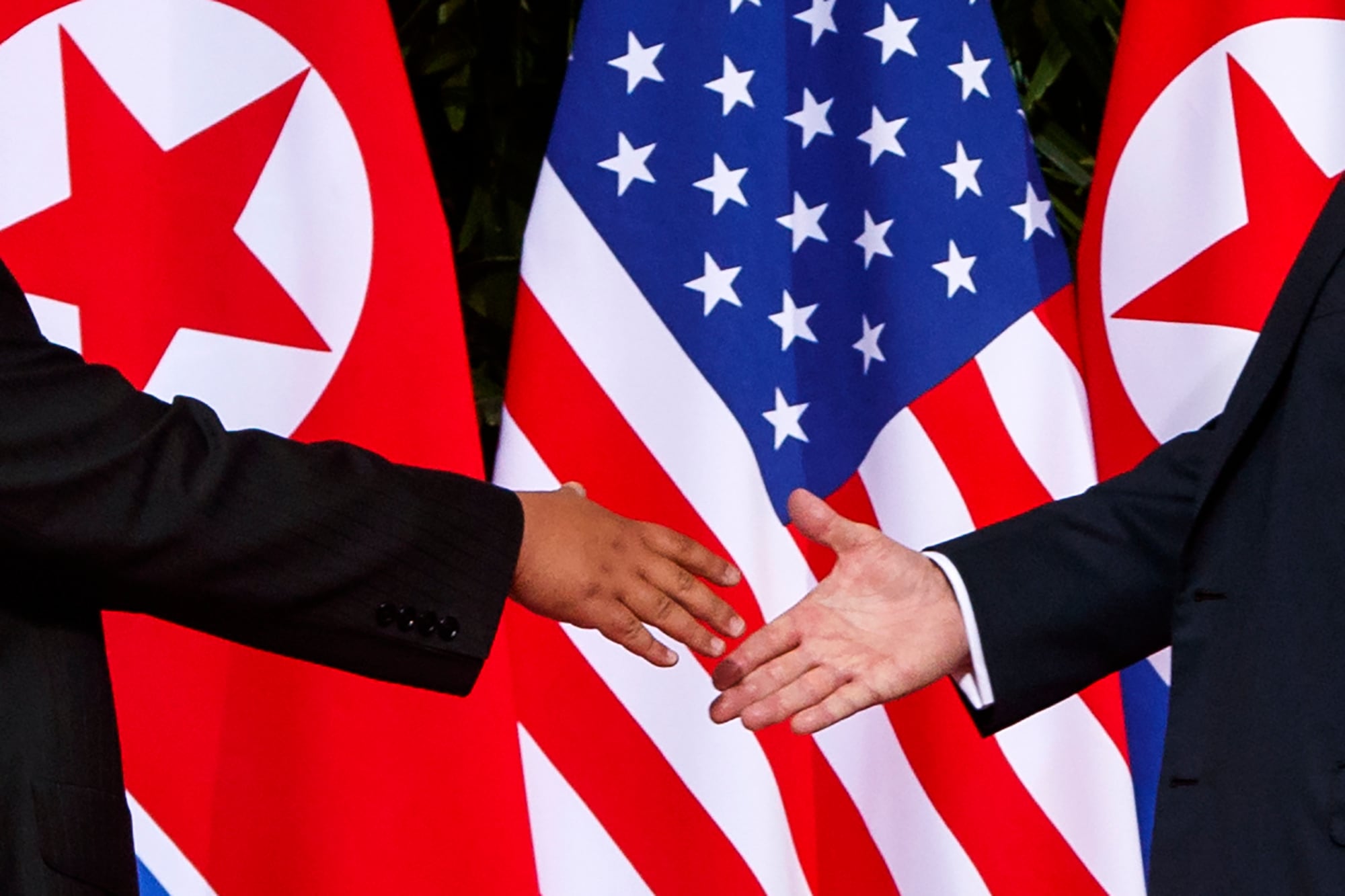WASHINGTON — U.S. senators from both parties said Tuesday they back a tough American negotiating stance toward Pyongyang after the breakdown of nuclear talks between President Donald Trump and North Korean leader Kim Jong Un last week.
“The president is not going to make a deal until we have a concrete plan forward, on the table and agreed to before anything is signed,” Senate Foreign Relations Committee Chairman Jim Risch, R-Idaho, told reporters Tuesday.
“It’s clear Congress’ position is there is to be no normalization [of the relationship] without denuclearization,” said Sen. Cory Gardner, R-Colo., chairman of the Senate Foreign Relations Subcommittee on East Asia, the Pacific, and International Cybersecurity Policy. “The president was right to walk away from a deal that would have given everything the U.S. has put in place from a maximum pressure standpoint.”
“If [Kim] is true to his supposed words about denuclearization, and we get an agreed-upon commitment, and it’s verifiable and it’s enforceable, we have a pathway forward,” said Senate Foreign Relations Committee ranking member Robert Menendez, D-N.J. “If not, we have to understand the options available to us are a lot more challenging.”
RELATED

The lawmakers spoke to reporters after a closed-door briefing led by the U.S. State Department’s special representative for North Korea, Stephen Biegun. Lawmakers declined to discuss specifics but said they were reassured by the clear picture presented to them of what happened in Hanoi, and that the Trump administration has a strategy — even if they did not believe it would work.
The Trump-Kim summit fell apart because of differences over how much sanction relief North Korea could win in return for closing its aging main nuclear complex. The U.S. and North Korea accused each other of causing the summit breakdown, but both sides left the door open for future negotiations.
Trump said Kim told him that North Korea would continue to suspend nuclear and missile tests while negotiations are underway, and South Korea and the U.S. announced Sunday that they are eliminating massive springtime military drills and replacing them with smaller exercises in an effort to support the talks.
Multiple outlets reported Wednesday that North Korea has begun rebuilding a satellite rocket launchpad and engine test site, in an ominous sign about its attitude toward negotiations on denuclearization. Satellite imagery suggests it started either just before or immediately after the breakdown of the summit meeting.
On Tuesday, Risch said Beigun provided lawmakers a “step-by-step, hour-by-hour” account of the Hanoi summit, placing the blame for the impasse on Pyongyang. Nonetheless, he said the two sides’ differences had been narrowed in Hanoi, and he expressed cautious optimism.
“They laid out strategy, they laid out clearly for us steps they gave as opportunities for the North Koreans,” Risch said of the briefing. “The North Koreans, of course, did not respond appropriately — and the president simply said he could not accept the counter[offer].”
As working level talks continue, Risch predicted they would take time but ultimately conclude in a grand bargain that yields a treaty for Congress to consider. “This is decades in the making, it’s going to be a long time as it unwinds,” Risch said, adding that Trump committed to him that any such deal would be presented as a treaty.
There is partisan division over Trump’s approach, as Democrats have criticized Trump as gambling on direct talks without the diplomatic prep work that typically undergirds them. Menendez said he was “never a fan,” arguing the first summit in Singapore last year turned Kim from “an international pariah” into someone more internationally acceptable.
“He did the right thing” to walk away from a bad deal, Menendez said of Trump. “He shouldn’t have gone there if the preparation wasn’t laid for the possibility of success.”
“I see what the strategy is,” Sen. Tim Kaine, D-Va., told reporters. “The odds of success on the strategy are not high, but I think everybody’s realistic about that.”
Sen. Chris Murphy, D-Conn., said there are not “a lot of other plays right now, so I think we got to all get behind this one no matter our deep reservations about the president’s ineptitude.”
RELATED

Nonetheless, Risch said he expects another Trump-Kim meeting at some point.
“These two people have a special relationship, and it is that special relationship [that] is moving this forward,” Risch said. “This is not something that is bubbling up from the bottom. Kim Jong Un can sit at that table, look across at President Trump and make a deal. That’s where this is going to eventually wind up.”
In the meantime, Gardner said, the U.S. would maintain its “maximum pressure” stance toward North Korea, and lawmakers would fight for new sanctions targeting ship-to-ship transfers to North Korea that violate the North Korea Sanctions and Policy Enhancement Act as well as a variety of United Nations Security Council resolutions.
“The discussions will continue, but North Korea must come much closer than they are on concrete steps toward denuclearization before any movement is made by the United States,” Gardner said.
The Associated Press contributed to this report.
Joe Gould was the senior Pentagon reporter for Defense News, covering the intersection of national security policy, politics and the defense industry. He had previously served as Congress reporter.





